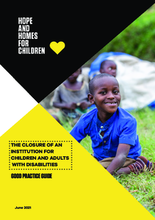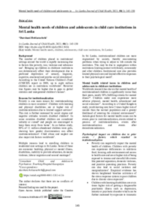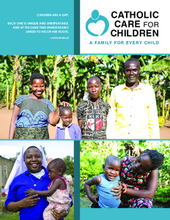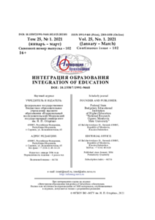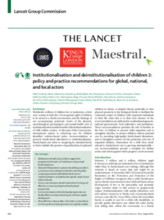Displaying 171 - 180 of 771
This document outlines 5 key steps that serve as an effective blueprint for a successful reintegration process of children and disabilities. These include ‘engagement’, ‘Assessment’, ‘Design & Development’, ‘Transition’, and ‘Monitoring & Evaluation’.
This article explores mental health related issues in children and adolescents in childcare institutions in Sri Lanka.
Catholic Care for Children (CCC) is a visionary initiative, led by Catholic sisters, to see children growing up in safe, nurturing families. Guided by the biblical mandate to care for the most vulnerable and animated by the principles of Catholic Social Teaching—especially the dignity of each person—CCC teams are reducing the need for institutional care by encouraging and facilitating family- and community-based care for children.
The study sought to reveal socio-psychological factors of successful integration of institutionalized adolescents into mainstream schools.
This study used data from the Bucharest Early Intervention Project – a randomized controlled trial of foster care for children raised in psychosocially depriving institutions – to examine the associations of the caregiving environment with reward processing, executive functioning, and internalizing and externalizing psychopathology at ages 8, 12, and 16 years, and evaluated whether these associations change across development.
This presentation - delivered by Marinus van IJzendoorn at a 18 November 2020 meeting of the Evidence for Impact Working Group, a working group of the recently launched Transforming Children's Care Global Collaborative Platform - presents evidence of the harmful impacts of institutionalization on children, demonstrates some of the benefits of deinstitutionalization for getting children back on track, and raises questions about gap-year volunteers working in orphanages.
This study shows that, when researching historical compulsory social measures, the inclusion of formerly institutionalised individuals in development and implementation is not only feasible, but is of significant benefit to the quality of the research.
The present study examined the protective effect of the error-related-negativity (ERN) in a sample of children who experienced at least 3-years of stable, relatively enriched caregiving after being internationally-adopted as infants/toddlers from institutional-care.
This systematic review critically evaluated the evidence for a causal association between child maltreatment and impaired cognition in children under 12 years.
In this second part of the Lancet Group Commission on institutionalisation and deinstitutionalisation of children, international experts in reforming care for children identify evidence-based policy recommendations to promote family-based alternatives to institutionalisation.

